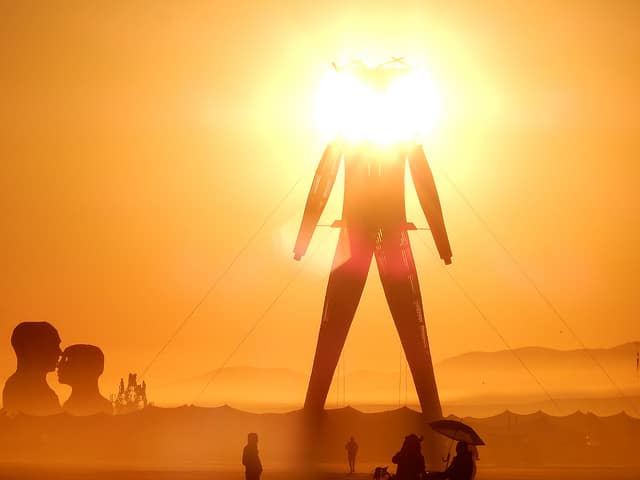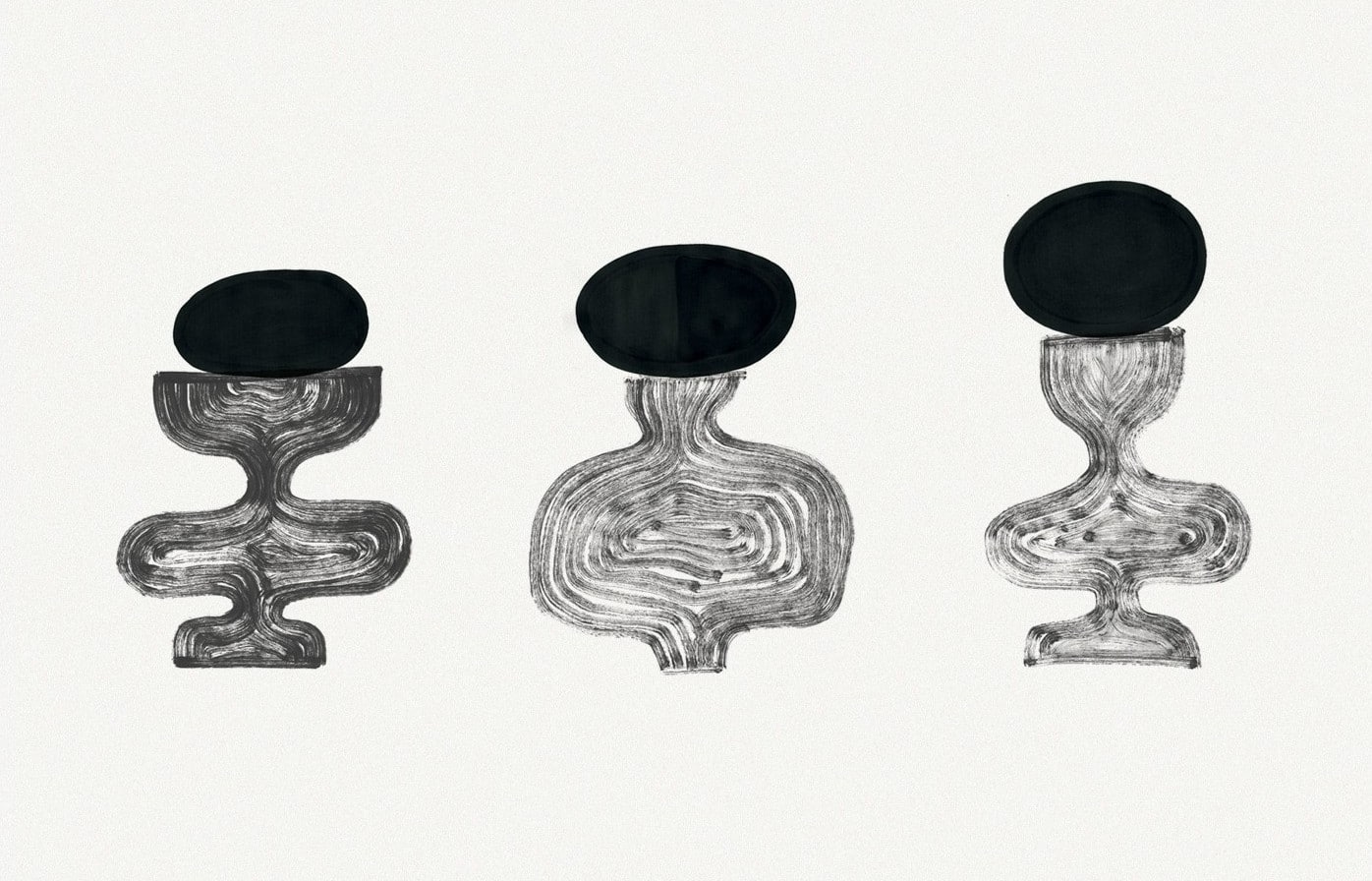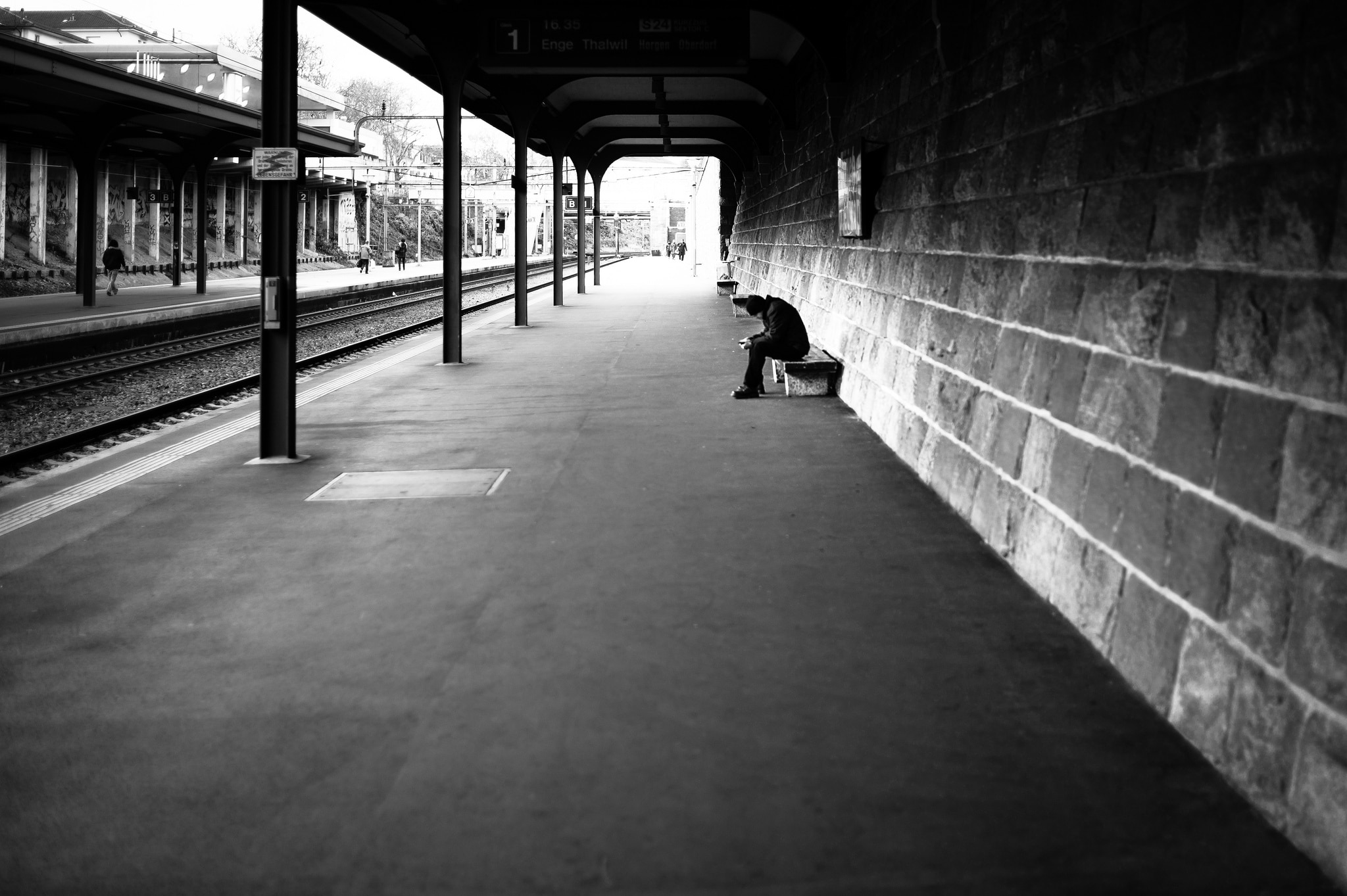There’s no doubt that Burning Man is a hectic place. For one week out of the year, 80,000 people descend on Nevada’s Black Rock Desert for the massive art and music festival, temporarily turning it into the state’s third largest city. Amidst a whirling circus of sights and sounds, public art installations and people dressed like extras out of Mad Max, Zendo—a psychedelic harm reduction project started by MAPS—offers a quiet, tranquil place where you can take a moment to connect with a human being when you need it the most.
Since 2012, Zendo has offered “psychedelic first aid” at festivals and events for people undergoing challenging psychedelic experiences, and Burning Man is one of the project’s biggest events. We talked with Joe Mattia, co-founder of Psychedelic Times, about his experience as a volunteer in the Zendo tent this year, how the project helps people move through challenging psychedelic experiences, and just how much volunteers get in return for their service.
The Zendo Experience
“What’s incredible about the zendo is that it’s a space where you are given another person to be fully present for you, which—unless you go see a therapist or a coach or you hire someone—is missing in a lot of places in society,” Joe said, reflecting on his second year as a Zendo volunteer.
This is particularly important in a festival scene like Burning Man, he explained, where “so many variables are out of your control.” In all the mania, each zendo—the Japanese word for a meditation hall in the Zen Buddhist tradition—provides a calm set and setting where people overwhelmed by a psychedelic experience can rest, recuperate, and share a human moment. The walls of the tent are draped in scarves and tapestries, and a low-lying platform hugging the perimeter provides a place for people to lay down. “It’s a comfortable, quiet space,” Joe said, then chuckled. “Well, not always quiet, depending on who’s driving by. But the energy, overall, is calm.”
The volunteers who staff the tent, called “sitters,” are not there as medical professionals or spiritual guides. “Yes, some of these people have a therapeutic background, but most of the people are just experienced with the festival scene and plant medicines and psychedelics. They’re your peers,” Joe explained.
Each volunteer is required to complete a four-hour training, where volunteers learn about Zendo’s four guiding principles: providing a safe space, being present with someone (rather than trying to take charge), helping the person connect with what they’re feeling in the moment, and understanding that a difficult experience is not necessarily a “bad” experience.
The most important tactic, though, Joe says, is to use your intuition. “There’s definitely structure and organization to the way it works, but it’s very organic. When you’re dealing with people in non-ordinary states of consciousness, it’s so random. In that state, you’re going to intuitively do in the moment what you need to support that person.”
Often, a person just needs to be reassured that the feeling will pass. Joe shared one experience with a man who was having a difficult time with LSD. This man was agitated and overwhelmed when he was brought in by the festival rangers. The volunteers responded by matching his energy and acting quickly. Joe immediately put his arm around him, wrapped him in blankets, and helped him get comfortable. “He wanted some assurance that it was going to go away. He was getting anxious that it was going to last forever.”
Joe sat with him over a two-hour period, and by the time he left his shift, Joe felt certain he was in a good place. “It was nice to see the progression, for him to come in with that commotion and slowly see him regain himself. His color, his breathing—everything returned and stabilized. I felt really confident when my shift was over. I knew he was getting some much needed rest.”
Ultimately, Joe said, a volunteer is there to be present, to provide a kind face and positive energy. “Your job is to hold a container of safe space and be present for them to move through it,” Joe said. “Because they will get through it, the intensity will pass.”
“You Show Up to Give and End Up Getting So Much”
“These are people who are really dedicated to helping people,” Joe said of the more than 200 Zendo volunteers at Burning Man this year, each of whom were asked to provide 20 hours of service to the cause of psychedelic harm reduction.
And sometimes being a sitter can be challenging. “Because of how vulnerable people show up, they’re pretty raw. It could take a therapist a year to get to the level of rapport that a little bit of plant medicine can do. So people come in, they don’t even know you, and they’re opening pretty heavy stuff sometimes—it could be childhood trauma, abuse, or whatever you could imagine.” To help sitters process their own experience, Zendo also holds integration circles for volunteers to share their stories and integrate what they’ve learned.
While challenging at times, the experience—“a very human experience,” as Joe describes it—is also incredibly rewarding. For him, volunteering this year provided another reminder of the importance of being present and how rewarding it is to share a real moment with another human being.
“Even at Burning Man, where the community at large is about acknowledging and including people, it can still turn into a social hierarchy. But in [the Zendo], you are truly one-on-one with another person. They have all your attention. There’s something about showing up for another person that is particularly nourishing. You show up to give and end up getting so much.”
As a recovery coach, Joe says volunteering also provides further perspective into what it’s like for someone in the thick of a psychedelic experience. “[With] recovery coaching, more often than not, you’re working with someone after they’ve done something. So [volunteering with Zendo] gives insight into how people are in the moment.” In the end, Joe said, volunteering for Zendo helps him bring more compassion to his role as a recovery coach and gives him a greater understanding of the multi-faceted value of psychedelic medicines.
A Vital Service That’s Growing
At Burning Man—a festival characterized by crowds, blistering heat, and a plethora of psychedelics—there’s no doubt that Zendo offers a much needed service. And it’s growing; this year, the project was better advertised to festival participants and two tents provided service at both ends of the playa. It’s exciting to see the project grow, Joe said, and for more people to gain access to psychedelic harm reduction that helps them navigate psychedelic experiences safely. “Not only for the people who receive the service, but also the volunteers and the community that’s formed around it, I left this year with even more appreciation for the project—just how important it is and how many good things are coming from it on so many levels.”
Thank you to Zendo and Burning Man for supporting safe, fulfilling psychedelic experiences. To learn more about this program or to sign up as a volunteer, visit Zendo’s website. To keep Zendo funded for future festivals, MAPS has currently raised $23,688 toward their $90,000 total fundraising goal. Please consider donating to MAPS to support the cause and help them meet their goals.










